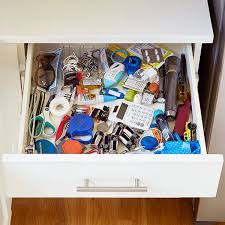
Despite the sunshine, the morning was
late-winter crisp. As a friend and I ventured out for a walk, I poured out my
heart. “All three of my sons are messes.” I pulled my woolen scarf higher around
my neck. “And not one of them is willing to change. It’s like Russian roulette—do
I wait for them to want to change? Or do I drop everything and hammer on
them until they give in and accept help? I don’t know what to do anymore.”
The friend—a mom whose grown kids all successfully launched—looked confused. I didn’t expect her to really get it, but our friendship took a precarious turn when she said, “Why don’t you just . . .?”
I didn’t hear the rest of her sentence. I
nodded politely while I stared up into the bare limbs of an oak, naked and
ashamed. Just. Just what?
I could have told her about the dozens of
parenting books I’d consulted since my children were small, about how the
traditional advice somehow never worked. I might have recounted all the
meetings, counseling and slogans I’ve tried to embrace to no avail. But my
friend was already waving goodbye.
A wind gust whipped my hair across my
cheek. A cloud parked itself over the sun. My friend’s comment would go into
the Just Drawer.
As a mom of grown sons with Substance Use Disorder I often feel like one of those organizers with dozens of tiny compartments. Every little box, door, drawer and shelf is color-coded, designed to keep things from ending up like a tangled necklace chain. But lately, my Just Drawer has overflowed.
Every day, problems, emotions and possibilities present themselves. Instead of staying neatly organized, all the just advice hovers like a cloud of locusts. Why can’t I just say no? When am I going to just stop thinking of my thirty and fortysomethings as children? Why can’t I just?
Just set boundaries, one counselor
advised. Just treat them with dignity and respect, another friend said. Less
tolerant folks in my life insisted, “Just don’t put up with their garbage
anymore!” With apologies to Nike, I’m a big fat failure at Just Do-ing
anything.
Part of the problem lies in the way my sons slide back and forth between adulting and acting like overgrown kids. When it comes to things which they’d like for me to do for them, they’re helpless as third graders. But if I begin to treat them as if they’re not quite yet tall enough to go on the carnival ride, suddenly adults rise up and proclaim independence. “You’re not the boss of me,” destroys any hope of mature dialogue.
It’s hard to know if we’re on the playground or at the bar.
Many other moms I speak with also deal with this Jekyll and Hyde transformation. The grown son or daughter with Substance Use Disorder pleads for a certain amount of cash, like a kid who hears the ice cream truck coming. The story is embellished until the situation sounds dire. He needs the money so that the bad guys won’t get him. She hasn’t eaten in a week. Just this one time, they beg.
I’ll never ask for a dime again, I swear it. Just this once.
Then, fireworks fly as just this once collides
with just say no. My kids have called me terrible names. He threatens suicide
or vows I’ll never see him again. Grandchildren become hostages. Attempts at
holding them accountable evaporate as begging gives way to strongarm tactics.
When they turn against me, I always wonder
who I’m talking to. Am I speaking to the boy who stopped emotionally maturing
around age eleven? Or is the person standing before me a cruel adult, willing
to trash everything to get his way?
I don’t know if either is correct.
I’m sure each of my sons are at least two
different people—one who’s kind and loves his mom and wants to do good—and
another whose substance use drives him to do and say whatever is necessary.
Maybe there’s a third person in there too. This one is held down by the other two and rarely surfaces. He’s desperate to change, has dreams and goals, and loathes himself for what he does.
He’s there in the cold winter nights when he remembers home, and when she quietly cries herself to sleep on that stranger’s couch. That son is there even after he’s cussed me out for offering to give food rather than cash.
That third person—the true son I love—signals to me when he leaves a rose on my chair. He writes a note that says, I love you Mom and I know he really means it. I tuck treasures like these into the Just Drawer for days when I need hope renewed. Days like today.




